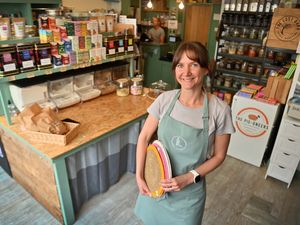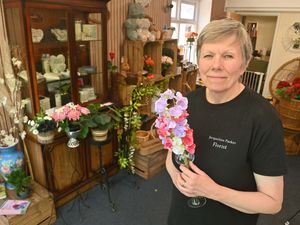Political column – September 18
Strictly's back!
And with it arises one of the most vexed questions of our age. Should television be a mirror? Or should television be a glitterball?
I was listening to a chat on the radio this week about representation, i.e. lack of, on television. Thinking about it, I have never seen or heard anyone on television I feel represents me, and it would actually be impossible.
The only person who could represent me would be myself, and even then I would not do a very good job of it because being in front of a camera is not my natural habitat.
Of course the premise of the debate was that people are not just individuals, but are all part of groups, and it is the groups which should be represented, as distinct groups within society.
So if you are an older woman you are in the older woman group – this was the particular issue under the microscope in the discussion I heard, that women on television or in film have, unlike their male counterparts, a "shelf life."
Similarly, if you are disabled, you are in the disabled group, ethnic minorities are sub-divided into their ethnic minority groups, people with mental health issues are all part of a distinct mental health group, and so on.
But the "mirror" or "glitterball" question is founded in whether what we see on the box is art, and the people who appear are artistes – that is, the jesters and clowns who take a stage to entertain the rest of us – or whether what we see on television is intended to be a reflection of the real lives experienced by the people watching, and indeed whether viewers actually want it to reflect their real lives, or whether they want it to be an environment of escapist fantasy.
Now you would hope in modern Britain that those serving up our television fare would want to reflect a diverse and inclusive nation.
However, arguably nothing on television can ever be real life because nobody lives their lives on television (except so-called reality stars, who have some of the most false lives of all).
I suppose the nearest to reality must be the news, but the order of the news bulletins is another unreality because it is a decision made by a handful of news people, who in effect say to the millions of viewers "this is the news because we say it is."
I have yet to see a news bulletin in this country led on the success or otherwise of the harvest, which is an important matter which affects us all. Or tractor production. Why not? You'd have to be in the old Soviet Union, I suppose, for such things to be considered bulletin-leading, which merely demonstrates how arbitrary these decisions are.
It was Rowan Atkinson, I think, and Rowan if it wasn't you please complain to me directly and I'll put the record straight next week, who argued that if something is an artistic endeavour the artist or artiste should have complete creative freedom.
We take it for granted in some areas. There have been countless crime novels about all sorts of grisly murders of men and women, a fictional genre which many readers lap up. Nobody ever seems to complain. Does it make a difference though if the same subject forms the subject of a song lyric?
Apparently so. There's that Tom Jones song, Delilah, which is an unofficial anthem with Welsh rugby crowds but they are urged not to sing it because it is about a man stabbing a woman to death.
What's this all got to do with Strictly? I've forgotten, but as you watch, ask yourself this: Are we dancers? Or are we human?
.............
Lord Deben – John Gummer to you and me – has suggested that people living in the countryside should embrace the darkness.
He's chairman of the independent Climate Change Committee, so that's where he's coming from on this.
Turn off the street lights, country people, he says, to save energy, and go around with a torch instead.
In 2002 villagers in the old mining village of Snailbeach in south Shropshire actually opposed plans for street lights because they thought it would ruin their view of the night sky.
A door to door survey showed that 68 per cent wanted to preserve their crystal-clear view of the stars.
Having never been to Snailbeach at night, I don't know whether villagers are today literal torch bearers for the save-the-planet cause.
However, while I imagine it is a low crime area, if I did go I would consider a torch a useful tool to help spot any muggers lurking in the shadows.





